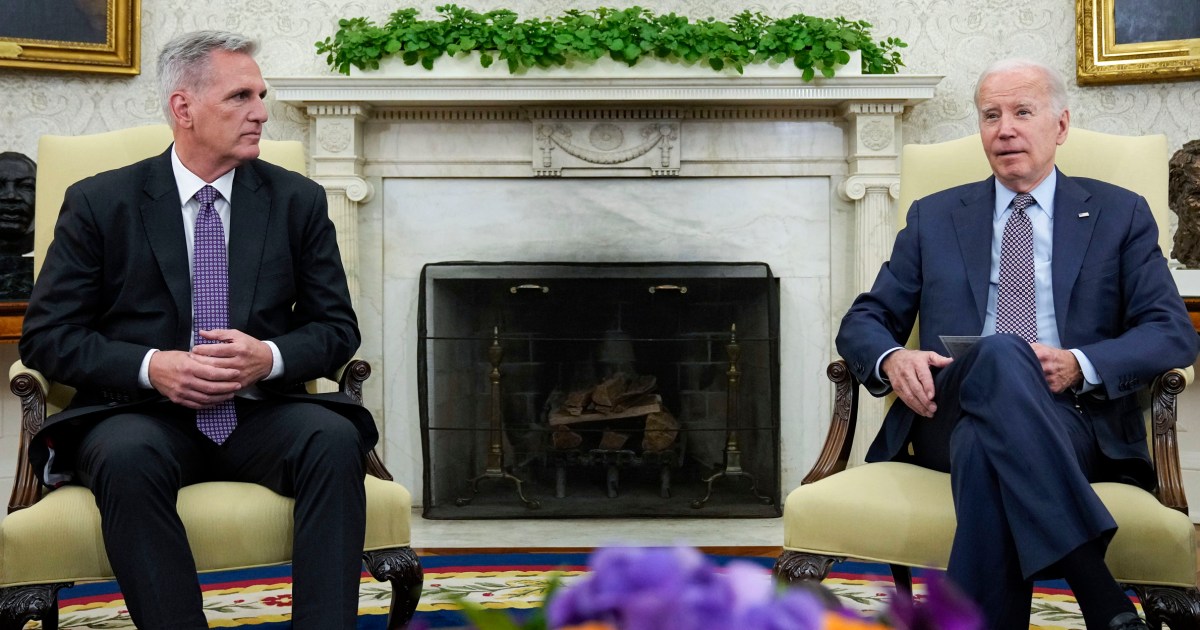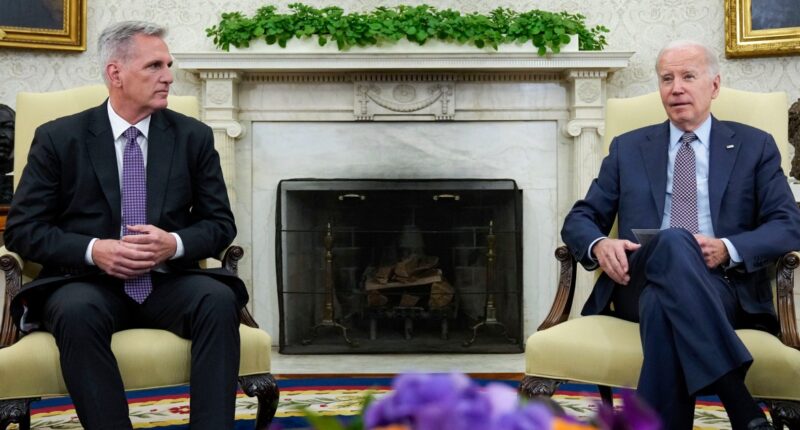
WASHINGTON — The bipartisan deal struck by Democratic President Joe Biden and Republican House Speaker Kevin McCarthy extends the debt limit for two years alongside modest federal spending cuts and a series of policy provisions.
The 99-page Fiscal Responsibility Act, which McCarthy says will get a vote in the Republican-led House on Wednesday, will need to pass the Democratic-controlled Senate before the June 5 deadline set by the Treasury Department to act or risk default.
Here’s what is in the legislation:
Debt limit extension to 2025
The core of the deal is a suspension of the debt ceiling — currently at $31.4 trillion — until January 1, 2025. The Treasury Department can then use “extraordinary measures” to pay the bills, which typically last for months.
That effectively resolves the issue through the 2024 election, leaving it to the next president and new Congress to deal with.
Spending levels
The agreement includes spending caps for the next two years to set up the appropriations process. In fiscal year 2024, it limits military spending to $886 billion and non-military discretionary spending to $704 billion. In fiscal year 2025, those numbers rise to about $895 billion and $711 billion.
McCarthy called the deal “historic” as it would amount to “cutting spending year-over-year for the first time in over a decade.”
Factoring in adjustments, the White House projects that when setting aside veterans funding, non-defense spending barely changes — with a slight reduction overall from 2023 to 2024.
“It’s flat. It’s a difference of about $1 billion,” said a White House official. “In a divided government, we’re not going to get the kinds of [non-defense discretionary] increases that we would hope to get.”
Conservative policy measures
What do House Republicans get?
The bill rescinds about $28 billion in unspent Covid relief funds, repeals $1.4 billion in IRS funding and restarts federal student loan payments after a lengthy “pause” that began at the start of the pandemic. It slaps work requirements for receiving Supplemental Nutrition Assistance Program and Temporary Assistance for Needy Families benefits on Americans up to 55 years old (the current threshold is 50), with carveouts for veterans and homeless people.
The bill overhauls the National Environmental Policy Act with the aim of streamlining permitting for projects; House Republicans tout it as “the first significant reforms to NEPA since 1982.”
What’s in it for Democrats?
The White House is touting this as a budget deal — not a ransom payment for a debt ceiling extension — and emphasizing the modesty of the spending cuts despite facing a GOP-led House. It also notes that the bill makes “no changes to Medicaid” and leaves Social Security and Medicare untouched. The White House says the bill fully preserves the climate and clean energy provisions of last year’s Inflation Reduction Act and leaves Biden’s executive action on student debt forgiveness untouched.
And it averts a catastrophic default for the rest of Biden’s first term.
“We think that taking the threat of default off the table into 2025 is a significant upside for the economy, a significant accomplishment,” the White House official said.
Source: | This article originally belongs to Nbcnews.com









